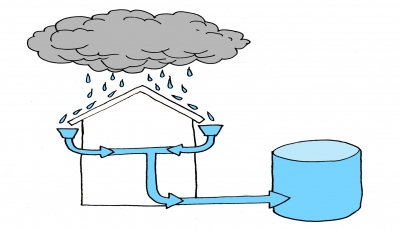Browsing Liquid Waste Difficulties with Reclaim Waste Melbourne's Expertise
Browsing Liquid Waste Difficulties with Reclaim Waste Melbourne's Expertise
Blog Article
Fostering Resource Effectiveness and Environmental Management Via Fluid Waste Elimination Programs
In the world of environmental stewardship, the administration of liquid waste stands as an essential juncture where source efficiency and ecological protection assemble. Fluid waste removal programs play a crucial duty in securing our communities and guaranteeing lasting advancement methods. By meticulously dealing with the disposal of liquid waste, neighborhoods and industries can not only mitigate prospective risks yet additionally unlock possibilities for recycling and repurposing useful sources. As we navigate the complexities of waste monitoring in a swiftly developing world, the synergy between cutting-edge modern technologies, rigid regulations, and forward-thinking strategies becomes progressively critical. Via a lens of positive interaction and calculated insight, the landscape of fluid waste monitoring reveals a tapestry of difficulties and opportunities that bid us to explore the path in the direction of a greener and more sustainable future.
Value of Fluid Waste Removal
The value of liquid waste removal hinges on its essential duty in preserving environmental health and protecting public health. Fluid waste, if not properly managed, can position severe risks to communities, water sources, and human wellness. With reliable elimination procedures, unsafe materials such as pathogens, pollutants, and chemicals are prevented from contaminating the setting and causing harmful impacts.
Appropriate liquid waste removal additionally assists in avoiding the spread of diseases and reducing the potential for groundwater contamination. By securely dealing with liquid waste, the risk of waterborne ailments and pollution-related health problems is considerably minimized - Industrial waste water treatment. Furthermore, effective removal techniques add to preserving the overall sanitation and visual appeals of communities, thus enhancing the lifestyle for homeowners
Additionally, liquid waste elimination plays an important duty in sustaining lasting growth and making sure compliance with ecological laws. By sticking to correct waste administration organizations, protocols and sectors can reduce their ecological footprint and show company duty. Eventually, investing in durable fluid waste elimination programs is vital for advertising environmental stewardship and cultivating a healthier, more secure future for all.

Benefits of Effective Disposal
Reliable disposal of liquid waste not just safeguards environmental wellness and public well-being however likewise produces countless benefits that prolong beyond immediate control actions. With procedures like recycling and power recovery, important sources can be removed from fluid waste, promoting sustainability and lowering the pressure on raw materials. On the whole, the advantages of effective fluid waste disposal are complex, including ecological defense, source effectiveness, and financial benefits.
Technologies for Waste Therapy
Using innovative innovations for waste treatment plays a vital function in making certain the efficient management and risk-free disposal of fluid waste. One of the essential innovations used in liquid waste treatment is organic therapy.
Advanced oxidation processes (AOPs) have acquired appeal for their ability to weaken persistent natural toxins in liquid waste with the generation of very reactive hydroxyl radicals. Membrane layer modern technologies like reverse osmosis and ultrafiltration work for dividing impurities from liquid waste streams. Furthermore, thermal therapy methods such as incineration can be utilized for the full destruction of dangerous elements in fluid waste. Overall, the combination of varied treatment modern technologies ensures detailed and eco pleasant monitoring of fluid waste.
Function of Laws and Conformity
In the realm of liquid waste administration, adherence to regulative frameworks and compliance standards is critical for protecting environmental health and sustainability. Regulations play a critical duty in controling the appropriate handling, treatment, and disposal of liquid waste to avoid harm to communities and human health. By establishing clear standards and criteria, governing bodies make certain that businesses and people entailed in fluid waste administration operate in an environmentally responsible manner.
Conformity with these laws is not only a legal requirement yet additionally a moral commitment to secure the atmosphere for future and existing generations. It includes executing best practices in waste collection, disposal, treatment, and transportation to reduce environmental impact and advertise resource effectiveness. Non-compliance can lead to fines, lawful action, and reputational damage for companies, highlighting the value of supporting regulative criteria.

Future Trends in Waste Management

An additional vital pattern in waste administration is the adoption of advanced information analytics and artificial intelligence to maximize waste collection courses, enhance sorting processes, and boost general operational efficiency. These technologies make it possible for waste monitoring business to make data-driven decisions, bring about set you back savings and ecological advantages.
Additionally, there is an expanding focus on the development of decentralized waste management systems, such as onsite therapy centers and mobile waste processing devices. These systems use versatility and scalability, allowing for extra reliable waste handling in diverse environments.
Verdict
To conclude, fostering source efficiency and environmental management through fluid waste elimination programs is vital for sustainable growth. Effective disposal techniques, advanced innovations for waste treatment, and stringent guidelines play essential roles in minimizing environmental effect. Looking ahead, continual innovation and enhancement in waste administration techniques will certainly be vital for dealing with the expanding obstacles of liquid waste disposal.
In the realm of environmental stewardship, the management of fluid waste stands as an important point where resource performance and environmental security assemble (Liquid waste removal).Making use of innovative modern technologies for waste therapy plays an important function in ensuring the effective management and safe disposal of fluid waste.In the world of liquid waste monitoring, adherence to governing structures and compliance standards is critical for safeguarding environmental wellness and sustainability.In final thought, promoting source efficiency and ecological security through liquid waste removal programs is important for sustainable advancement. Looking in advance, constant innovation and enhancement look at this website in waste management practices will certainly be essential for addressing the growing obstacles of fluid waste disposal
Report this page